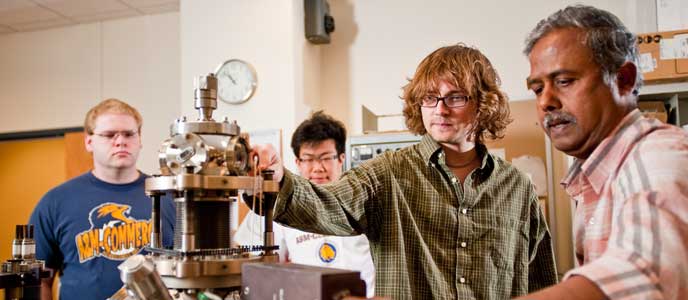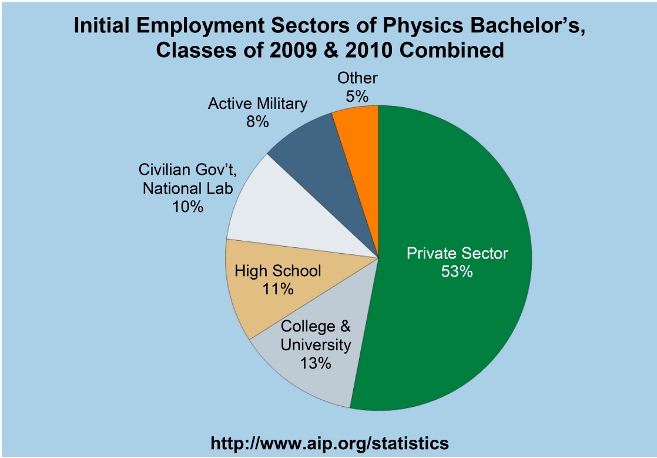
What is Physics?
Albert Einstein once said "The world stands before us as a great, external riddle." Finding the solution to that puzzle is what physics is all about. Physicists study the physical world to satisfy their curiosity and in the process develop numerous skills and knowledge useful to themselves and the world. It is difficult to name a modern convenience that cannot be traced to original work done by physicists or utilizing instrumentation developed from such work. However, the pure physicist is not overly concerned with the immediate application of the knowledge that he/she acquires in studying the physical world. Examples include electrical devices of all kinds from TVs to computers to electric cars: mechanical devices like automobiles, trains, elevators, etc. and almost any device that uses energy.
What do Physics Graduates do for work?
At this time, job opportunities in both the pure and applied physics areas are excellent. The applied physics graduate is more likely to enter into the industrial workforce and the pure physics major is more likely to enter into a research environment at a government lab or at a university. Historically, engineers and applied physics graduates have more opportunities but have more competition for those opportunities. Surveys of recent physics graduates who pursued careers in the private sector show the following popular professions:

Average salaries offered to physics graduates are among the highest of any college major. A few starting salaries offered are given below. Those with degrees in physics have an average starting salary of $50,300, and a mid-career median salary of $97,300 (Source: Wall Street Journal, 2012). It is also worth noting that physics graduates have a very low unemployment rate.
| Aerospace Engineering | $57,700 |
| Physics | $50,300 |
| Math | $45,400 |
| Life Sciences | $38,800 |
| Psychology | $35,900 |
What Should I Take Now to Prepare for Physics in College?
Mathematics is the gateway to advanced study in physics and astrophysics. It is the single most important subject that has historically predicted success in these areas. Of course, you should take as much science as you can and be sure to include as much physics and chemistry as is offered at your school.
Do Physics & Astronomy Majors do Research as Undergraduates?
Absolutely YES! Our goal as a department is that every undergraduate who wants to participate in research will have the opportunity to do so. We also recommend that students pursue summer research opportunities such as the NSF-funded Research Experiences for Undergraduate (REU) summer intern programs, or intern programs hosted by NASA sites.
Do You have Scholarships for Physics Majors?
There are only a few true scholarships reserved for physics majors but we have a number of opportunities for undergraduate assistantships (jobs within the department).
To request a change to this page or to request access to make changes yourself, email helpdesk@tamuc.edu.

